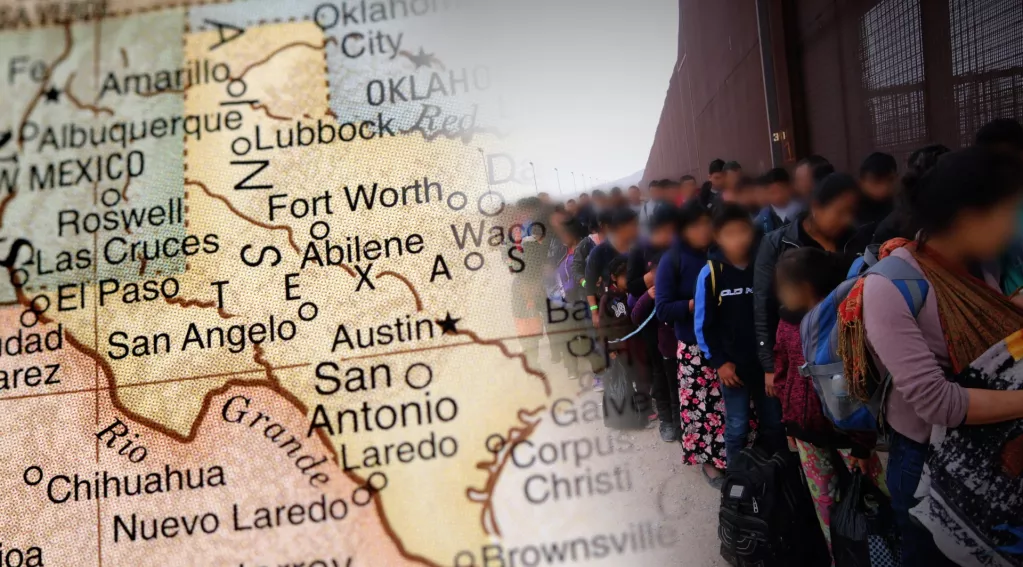By Michael Capuano
FAIR
Last Wednesday, the Fifth Circuit Court of Appeals heard oral arguments on the constitutionality of Texas’s new immigration law, SB 4. As the judges decide whether Texas has the right to defend itself, the judges will not only have the opinions of Texas and the Department of Justice, but other parties interested in the outcome, including the Government of Mexico which filed an amicus brief (also known as a “friend of the court” brief) asking the Fifth Circuit to strike down the law.
Mexico has a long history of inserting itself into U.S. immigration debates. Indeed, the instances of Mexico telling the U.S. how it should manage its immigration system are too numerous to count. In more recent history, however, the Mexican government supported amnesty legislation debated, but ultimately rejected, by Congress in 2007. Then, only a few months later, the President of Mexico voiced loud objections to President Bush’s decision to increase enforcement efforts against illegal workers. Mexico also condemned Arizona’s passage of S.B.1070 in 2010 and, when challenged in court, filed an amicus brief asking that it be struck down as unconstitutional. Most recently, Mexico filed a diplomatic protest to Texas placing buoys in the Rio Grande River to stop the flow of illegal aliens across the border. Not surprisingly, each time Mexico has sought to protect its own nationals without regard to U.S. sovereignty, the rule of law, the impact of its own actions on the American people.
Mexico’s opposition to S.B. 4 is no different. In its amicus brief, Mexico makes a variety of well-worn arguments for why the Fifth Circuit Court of Appeals should strike down S.B. 4.
First, Mexico argues that S.B. 4 is inherently discriminatory and echoes claims from open-borders advocates that any immigration enforcement is damaging. Indeed, in its brief Mexico argues S.B. 4 “impliedly encourages the use of race, color, or national origin” in enforcing its provisions and thus the law “cannot be applied in a race neutral manner.” This “discriminatory targeting of Mexican nationals and persons of Latino appearance,” Mexico says, “will lead to the harmful separation of families, negatively affecting both Mexican and U.S. citizens.” Furthermore, Mexico argues “[r]equiring the police to act as immigration officers may undermine police legitimacy in Latino communities, reducing crime reporting and leading to an increase in criminal activity.”
Mexico also claims that even the prospect of enforcing S.B. 4 has already created fear among Mexicans living in the U.S. and is already draining the resources of its 11 consulates in Texas. The brief states:
“Based on Mexico’s consultations with its consular officials stationed throughout Texas, it is undeniable that SB 4 is creating fear, panic, and uncertainty among Mexican nationals living in Texas regardless of their immigration status, as well as among Mexicans visiting Texas for both business and leisure travel. This widespread concern is causing a disproportionate share of the time and resources of Mexican consular officials in Texas to be focused on addressing the immigration enforcement concerns of Mexican nationals located in Texas instead of promoting commercial, economic, cultural, and scientific relations between Mexico and the United States.”
Mexico’s second argument on the impact it perceives S.B. 4 will have on U.S.-Mexico diplomatic relations. Citing the Supreme Court’s 2011 decision in Arizona v. United States, it argued it is imperative that foreign nations be able to confer with one national sovereign, not 50 separate states. And, it argues, if S.B. 4 is upheld, other states will follow, and that Mexico will have more governments with which it must interact. This expansion of state immigration enforcement, Mexico says, “will require Mexico to deploy significant resources to protect its nationals in Texas”.
Then, in an ironic twist, Mexico argues that S.B. 4 interferes with Mexico’s sovereign right to determine who enters its territory. S.B. 4, it argues, would incentivize illegal aliens to leave the U.S. for the country they were last present in, which would be Mexico in nearly all cases. Mexico claims that it has a sovereign right to refuse the return of illegal aliens. In the case of third-country nationals, Mexico notes that many of them require a Mexican visa—apparently forgetting that the Government of Mexico allowed them to traverse its territory en route to the United States. Nevertheless, Mexico argues that the return Mexicans and other foreign nationals en masse would create “confusion and chaos at the border.”
Finally, Mexico argues that S.B. 4 will undermine cooperative efforts to manage the border and border region. Pointing to the 2010 Joint Declaration on 21st Century Border Management, Mexico uses its brief to stress the importance of “addressing” bilateral issues like immigration through “comprehensive diplomatic negotiations that prioritize a wide array of concerns,” such as trade and the economies of border regions. While this argument utterly ignores the fact that such “cooperative efforts” have failed miserably, as evidenced by the current crisis on the border and the recent attempts to shakedown the U.S. government for $20 billion in foreign aid and policy changes, Mexico nevertheless uses them a justification to strike down S.B. 4.
Mexico’s arguments aren’t exactly the cream of the crop, but they are a good look into the mindset of our neighbor. It seems Mexico believes in the sovereign right to control borders- when it’s their own northern border. But however disingenuous Mexico’s arguments are, they may still help sway the Supreme Court, which, in the landmark decision of Arizona v. United States cited foreign relations as a reason why states could not embark on their own immigration schemes. Here however, Texas is arguing that Arizona does not apply because its efforts to fight illegal immigration rest with its Constitutional right to defend itself against invasion.
Given the complexity of the arguments, it make take weeks for the Fifth Circuit to issue an opinion. And even then, court watchers say the case will likely be taken all the way to the Supreme Court. Stay tuned to FAIR for more updates on S.B. 4.
















